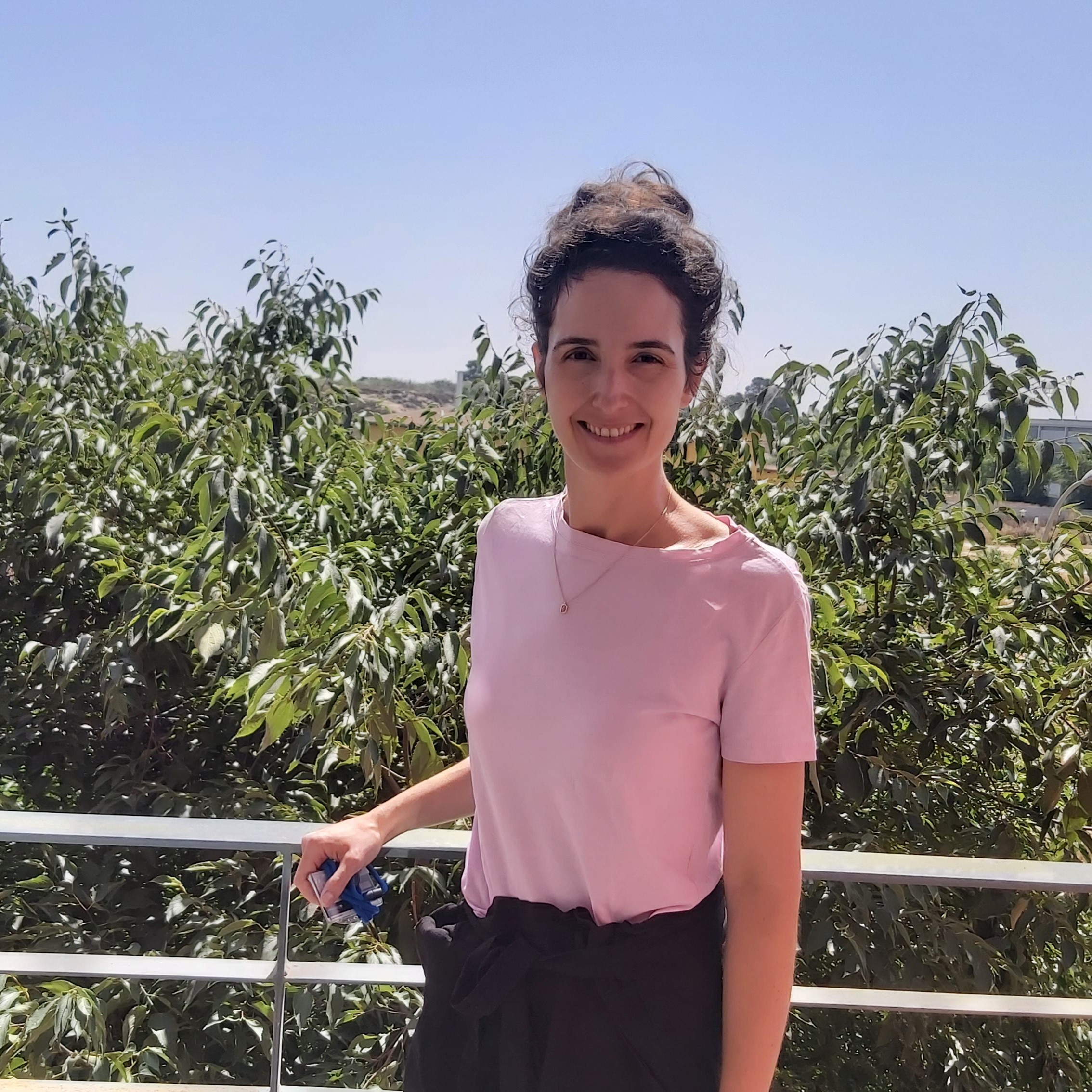What led you to pursue research?
I think it was both curiosity and life circumstances. I’ve always enjoyed learning, I was good at studying, and many people around me—family and teachers—always encouraged that quality. When it came time to choose a degree, Biomedical Engineering caught my attention because it is highly multidisciplinary: you learn a bit of everything, but you don’t really specialize in anything.
After finishing my degree and master’s in Madrid, I was not sure what to do. I had enjoyed the research experience during my bachelor’s and master’s theses, but I didn’t really see research as a career path. I applied for some job offers and, in the meantime, the group where I did my master’s thesis at the Cajal Institute secured several funded projects. They offered me the chance to do a PhD in neurorehabilitation topics. It sounded interesting, and if I wanted to give research a try, that was the moment. So I accepted—and here I am today.
What are your main research areas?
My research focuses on neuroengineering applied to motor control. Using technology, such as recording the electrical signals generated by the nervous system, we can create interfaces that provide valuable information about its state. This allows us to learn more about how the brain and spinal cord control movement through the muscles. We study this both in healthy individuals and in patients with movement disorders, such as tremor or Parkinson’s disease. Based on this knowledge, I also work on developing techniques to interact with the nervous system and modulate its activity, with the aim of reversing certain symptoms.
Is there a project you are particularly proud of because of its impact?
Yes—the EXTEND project, which was the basis of my PhD thesis at the Cajal Institute. In one part of the project, we used electrical stimulation with intramuscular electrodes to reduce tremor in patients with a condition called Essential Tremor. Although the intervention was acute and the effects didn’t last much beyond the experimental session, we observed promising results in some patients, who were very enthusiastic.
That project led to several publications and other research initiatives across multiple centers aimed at better understanding the potential of neuromodulation techniques to treat tremor symptoms. Beyond the scientific learning, what I carry with me is the generosity of the patients who gave us their time knowing they would not gain any significant direct benefit. They were there because they believed it was their duty to help find treatments for their disease in the future, even if they themselves wouldn’t benefit.
How do you envision the future of your field? What trends or challenges do you foresee?
The biggest challenge is transferring all the nervous system signal recording techniques from the lab to the real world, so they can be turned into clinical or everyday applications with real societal impact. We need to develop commercial devices capable of collecting data from large populations to build databases that can generate useful insights for early diagnosis and monitoring.
One future trend could be the development of minimally invasive implantable systems—essentially, small sensors inside the muscles that continuously send information about the state of the nervous system. That would be very useful for accurately monitoring disease symptoms and optimizing treatments.
What has receiving European support through the Marie-Curie program meant for you?
It is a huge boost of professional recognition because Marie Skłodowska-Curie fellowships are highly prestigious in the research world. Personally, that prestige matters less to me—I’m the same researcher, with the same ideas and knowledge, before and after the fellowship. What I truly value is the financial support, which allows me to carry out my research and continue training for two years at I3A. For that, I feel both privileged and grateful.
What do you enjoy most about your profession?
The freedom to learn, without a doubt. Research allows you to generate questions and look for answers to things that wouldn’t fit in the private sector, where work is usually guided by economic or productive goals. In research, the process isn’t defined by a fixed path you must follow within a set time. Instead, it’s more like creating the path as you go, which constantly branches out because every question you answer leads to new questions, new projects…
What advice would you give to someone considering a career in research?
Doing a PhD is neither traumatic nor a lifelong contract with research. For me, it was a very good experience where I learned a lot both professionally and personally. So, up to that point, no one should be afraid of it. Afterward, there are plenty of options if an academic research career doesn’t feel like the right professional path.
But, if someone wants to pursue a research career at universities or research centers, I would tell them to be sure about it. It is a vocational profession where no one tells you exactly what to do. As cliché as it may sound, you need to have that fire of curiosity inside pushing you forward—because no one else will do it for you. For me, it is not a difficult path; instability is the main obstacle. But I think the advantages outweigh it.
Up close…
Studies: Bachelor’s, Master’s, and PhD in Biomedical Engineering (very original, I know).
A dream to fulfill: That my family and friends do well.
Free time: Spending time with friends, traveling as much as possible, racket sports, and cooking.
A book: Hopscotch (Rayuela).
A movie or series: V for Vendetta.
Music group: Estopa.
A trip: Japan.
How do you define yourself: Responsible, calm, curious, and caring.
